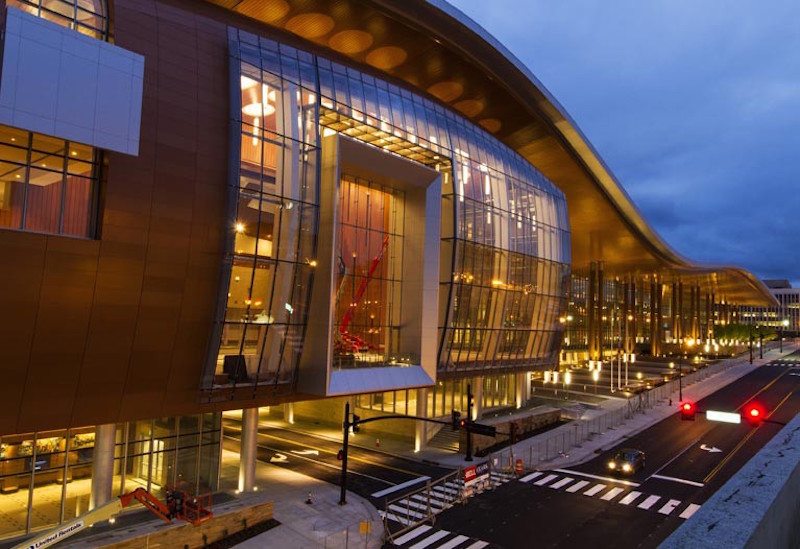Nashville’s former mayor led his city as a single, networked entity. His approach is paying off.
People do not experience their urban habitats as fragmented collections of residences, businesses and municipal agencies; instead, they experience their community as a singular whole. Yet fashioning these various community elements into a shared purpose poses a daunting challenge.
Karl Dean, who recently finished his second term as mayor of the consolidated government of Nashville and Davidson County, was particularly effective in connecting the familiar “one city” rhetoric to actionable principles and real results. Dean led Nashville as a single, networked entity with many moving parts. Though he never worked up any kind of formal “one Nashville” plan, he was fond of emphasizing to city stakeholders that “everything is connected.”
From our partners:
[infobox title=’Kristine LaLonde, Nashville’s former chief innovation officer said:’]”The mayor was always talking about what Nashville does.” “It wasn’t so much ‘what I need to do as mayor’ but ‘what we need to do as a city.'” During Dean’s time in office, Nashville enjoyed enormous success on a variety of fronts, due in no small part to his everything-is-connected approach to governance.[/infobox]
“We had clear priorities, three pitches to hit every day,” Dean told me recently. Those three “pitches” were education, public safety and economic development, and they were more than abstract concepts to him. They were action items that remained core priorities from his campaign to his last days in office. He insistently increased education funding, built up the police force to its largest size in the city’s history and helped win several corporate relocations. As a result, education outcomes have improved, crime rates have hit record lows and the city’s tax revenues have soared.
“Dean’s leadership style is not the bombastic sort of many career politicians in similar executive roles; he was a quiet, inclusive and steady leader.”
By holding himself and his staff accountable to the principles and goals he laid out early on, he was able to garner the trust necessary to build the coalitions that allowed Nashville to stake a claim as a top-tier city.
Dean demonstrated this aptitude to weave together constituencies in his successful championing of the Music City Center project, a large, ambitious development plan for a new convention center. In 2007, he formed the Music City Center Coalition, a group that brought together business leaders, grassroots community activists and residents who supported the project. The recession hit a year later, and critics thought the city should stall the project. But Dean was confident that Nashville needed it, and with building costs low because of the economic downturn he pushed the project forward.

In January 2010, Dean successfully brought local legislators on board, and the Metropolitan Council voted to approve construction for the project. LaLonde, who was a councilwoman at the time, said Dean did not need her vote to win the council’s approval but that he wanted it. “He wanted me on his side; he wanted to feel like he had convinced me that it was the right thing to do.” Dean’s insistence on working together, beyond meeting a bottom line, drove the project to completion even in the deepest trough of the recession. The convention center was built under budget and ahead of schedule.
The Music City Center project was about economic development in the hospitality industry, but throughout the process Dean never lost sight of his original priorities. “By making the investment in the Music City Center, we were able to expand revenue for the city, which put us in a position to deal with public-safety issues and school issues,” he said.
Dean was sensitive to how such a project could create opportunities for new partnerships with local businesses, arts nonprofits and the other community organizations. More than 30 percent of the construction spending ($130 million) went to minority- or women-owned businesses as part of the city’s Diversity Business Enterprise (DBE) program. At the end of the 2014 fiscal year, the Music City Center reported a DBE participation rate of 47 percent. That reflected a commitment by the mayor to ensure that Nashville’s diversity was represented in the way local government conducts its business.
“The city has to have enough confidence to invest in itself,” Dean used to say. He leveraged that confidence to build coalitions that represented the whole city. This is no easy task, and it’s one that requires a deep sense of faith in the leadership behind it. But with his adamant commitment to a consistent set of core principles, Dean inspired the confidence that made Nashville’s investments likely to see long-lasting returns.
As LaLonde put it:
“He did what he said he was going to do.”
This feature originally appeared in Governing.


















